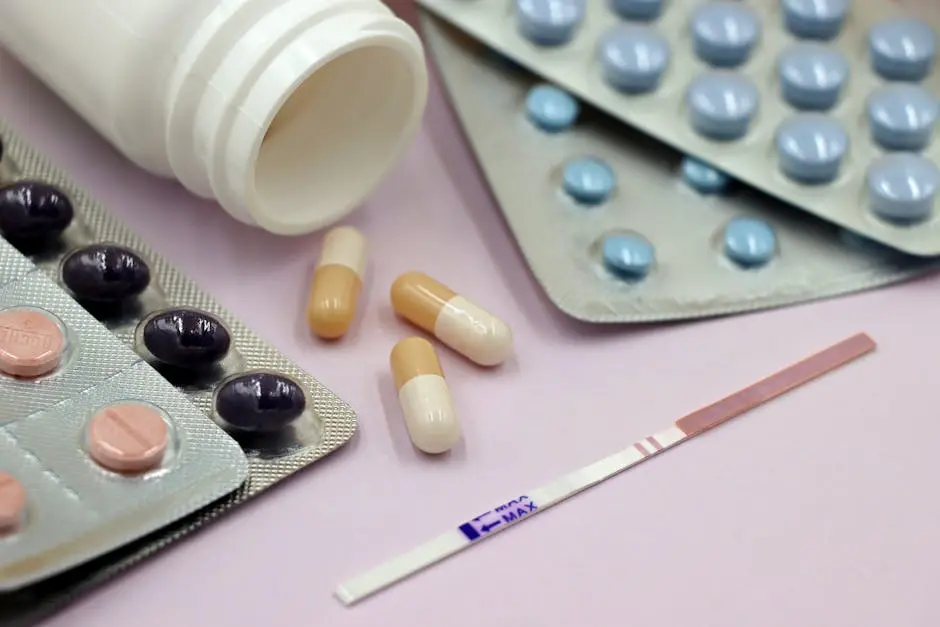Bioidentical hormones are compounds that are chemically identical to the hormones produced by the human body. They are often used in hormone replacement therapy to alleviate symptoms associated with hormonal imbalances. In this blog, we will explore what bioidentical hormones are, how they differ from traditional hormone therapies, their benefits, and considerations for those considering their use.
Defining Bioidentical Hormones
Bioidentical hormones are synthesized compounds that have the same molecular structure as hormones naturally produced by the body. This means that they are recognized by our body as familiar entities, which can lead to a more effective therapeutic experience. Common bioidentical hormones include estrogen, progesterone, and testosterone.
The term ‘bioidentical’ refers to the identical structure and function of these hormones compared to those manufactured by our own endocrine system. This not only makes them potentially safer but also may reduce the risks of side effects commonly associated with synthetic hormones.
Furthermore, bioidentical hormones are typically derived from plant sources, such as yams and soy. This is in stark contrast to their synthetic counterparts, which are created through chemical processes. Many individuals seeking hormone replacement therapy appreciate this natural origin, believing it aligns more closely with a holistic approach to healthcare.
How Bioidentical Hormones Work
Bioidentical hormones work by mimicking the hormones your body produces. When introduced into the system, they bind to hormone receptors just like natural hormones do. This helps to restore hormone balance, alleviating symptoms of low hormone levels such as fatigue, mood changes, and insomnia.
For example, during menopause, decreased estrogen levels can lead to uncomfortable symptoms. By using bioidentical estrogen, women can experience relief from hot flashes, night sweats, and other distressing issues. The effectiveness of these hormones often leads to improved quality of life.
Additionally, bioidentical hormones can be tailored to meet individual needs. Healthcare providers often use hormone testing to determine specific hormone levels. Based on these results, they can create a personalized treatment plan that addresses the unique hormonal imbalances within a patient.
Benefits of Using Bioidentical Hormones
The benefits of using bioidentical hormones can be quite compelling. One of the primary advantages is that they are often more closely matched to the body’s natural hormones, which can lead to improved efficacy and fewer side effects. Patients frequently report a greater sense of well-being when using these compounds.
Another significant benefit is the individualized treatment approach. Unlike standard doses of synthetic hormones, bioidentical hormones can be customized in precise dosages and delivery methods, such as creams, gels, or injections. This means patients can receive treatment that aligns with their specific needs, preferences, and lifestyles.
Differences Between Bioidentical and Synthetic Hormones
Understanding the differences between bioidentical and synthetic hormones is crucial for anyone considering hormone therapy. Synthetic hormones are chemically engineered, meaning their structure will differ from the natural hormones produced in the body. This structural variance can lead to side effects that are not commonly associated with bioidentical hormones.
Moreover, while synthetic hormones are often used in conventional hormone replacement therapies, they can sometimes lead to unwanted consequences. Many users report issues such as weight gain, mood swings, or increased risk of blood clots. Conversely, the natural equivalence of bioidentical hormones tends to result in a more favorable safety profile.
Importantly, patients should be aware that the regulatory landscape differs significantly for these two types of hormones. While bioidentical hormones are often compounded in specialty pharmacies, synthetic hormones usually undergo rigorous clinical testing and are FDA-approved. Therefore, it’s essential to choose a knowledgeable provider who can navigate the options effectively.
Considering Bioidentical Hormone Therapy
For those considering bioidentical hormone therapy, there are several factors to evaluate. First and foremost, a thorough assessment by a qualified healthcare professional is essential. This assessment typically includes a comprehensive review of medical history, symptoms, and hormone level testing.
Once you’re armed with information about your unique hormonal profile, you can make more informed decisions about which treatment options are right for you. Engaging in an open and honest dialogue with your practitioner allows for a tailored approach that meets your specific needs.
Additionally, it’s vital to stay educated about the potential risks and benefits involved with bioidentical hormone therapy. This means being aware of how long you may need to be on treatment and what the follow-up care will entail. By actively participating in your healthcare choices, you can work towards achieving the best possible outcomes.
Final Thoughts on Bioidentical Hormones
Understanding bioidentical hormones is key to making informed decisions about hormone therapy. Their chemical similarity to natural hormones allows for a more tailored approach to treatment. However, as with any medical treatment, it is essential to consult with a healthcare provider to discuss individual needs and potential risks.

